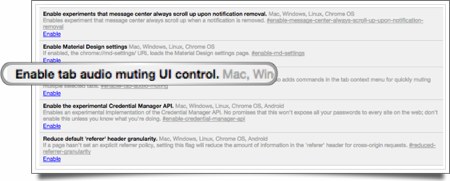Posts for August 2015
The cloud: good for your business, and the economy
 Cloud computing has been a game-changer for business IT. In the UK last year, 581,173 new businesses were registered with Companies' House. Certainly, part of this accelerated growth can be put down to cloud computing
Cloud computing has been a game-changer for business IT. In the UK last year, 581,173 new businesses were registered with Companies' House. Certainly, part of this accelerated growth can be put down to cloud computing
This is because cloud technology allows new ventures to be in business almost instantly. As a new company, you can get an IT infrastructure that would be far beyond your reach if you were required to buy and host it in-house.
This rapid deployment means new businesses can punch above their weight and compete with larger, more established peers almost immediately.
It may not seem as easy for established businesses to deploy cloud services. Research from the Federation of Small Businesses found that only a quarter of small firms are actually investing in technology such as cloud computing – even though they could reap many benefits from going down this route.
Overall, it seems new businesses are more willing to embrace these new technologies.
The barriers to entry for existing businesses
Around the world, many major businesses have already switched from on-site IT solutions to the cloud. And they're enjoying the advantages this brings them.
So, why are smaller companies holding back from this transition?
A survey from Oxford Economics (PDF link) found many small businesses are more interested in technologies such as business intelligence and mobile solutions rather than the cloud.
Additionally, some small business owners are scared of the cloud. Often, they have concerns about the costs, complexity and risks involved.
But cloud computing is changing how people do business. By ignoring the potential of this technology to evolve their own businesses, smaller companies are missing out.
It's essential they look at adopting the cloud. The productivity benefits it can bring may enable them to stay competitive. There are really four key areas to consider:
1. The cost of cloud computing
Cloud technology can deliver significant cost savings by reducing the need for in-house infrastructure. It also tends to reduce upfront expenditure and ongoing maintenance costs.
A report from the European Commission found that the adoption of cloud computing could result in 80% of organisations reducing their costs by about 10%-20%.
2. The benefits of pay-as-you-go
Many cloud computing services offer the option to pay monthly. When cash flow is important to your business, this can make a big difference.
Pay-as-you-go options also allow businesses to access sophisticated software with no upfront fees and no lock-in period.
3. Being able to stay flexible
Mobile technology means you can now do business anywhere there's an internet connection. Cloud computing lets your staff access applications and files on the go.
This can be good for all kinds of businesses. For instance, if your company employs freelancers or has employees who have to travel for work, this could keep them in touch.
The cloud is also helpful when it's difficult for staff to get into the office. You can run the company from anywhere, because you're not reliant on technology on your premises.
4. Staying secure
Security has long been a barrier to wider adoption of cloud computing. However, cloud providers can actually offer increased security at a lower cost than smaller companies could otherwise afford.
Put it this way: if you choose your cloud provider carefully (that's important), your data will be kept in a UK data centre. There, it'll be protected by security measures far in excess of what your business could implement, because the cloud provider's reputation hinges on keeping data safe.
The cloud will grow the economy
With their capacity to adapt in an ever-changing business environment, small companies are vital for continued UK economic growth.
Many innovative start-ups growing by making the most of what the cloud provides, but all businesses should be aware of its transformational potential.
If you run a smaller business, you need know-how to stay ahead of the game. What's more, the wider business and digital communities must work to encourage and support the adoption of new technologies, including the cloud.
Copyright © 2015 Steve Belton of InstaCloud
IT for Donuts: how to mute a tab in Google Chrome
IT for Donuts is our regular feature where we explain a tech term or answer a question about business IT.
This time, we look at how to deal with annoying websites that play sound unexpectedly. If you use Google Chrome, a clever experimental feature lets you mute the audio from a specific tab – without muting your entire computer.
The annoyance of loud websites
Here's a scenario for you. You're working away, with several website tabs open. To help you concentrate, you've put some music on your headphones (or maybe you've gone for some more ambient background noise).
Then, unexpectedly, a shrill noise intrudes. One of the websites you have open in the background is playing audio automatically. It's probably an irritating advert trying to grab your attention.
Your immediate response might be to reach for your computer's mute button. But that doesn't just mute the irritating sound – it also mutes the audio you're listening to. Surely there's a better way.
Muting individual tabs in Chrome
Well yes, there is a better way. If you use Google Chrome, you've probably noticed that it shows a little loudspeaker icon in the relevant tab when a web page is playing audio:

This is a good way to quickly identify the offending tab, so you can close it quickly and never visit that particular website ever again. (There's a reason intrusive audio ranks high on our list of website sins.)
If you don't want to close the tab completely, you can use an experimental feature in Chrome to mute the audio. The benefit of this approach is that you can mute only the audio playing from that tab, without affecting whatever else you're listening to.
1. Enable the experimental feature
When you're using Google Chrome, go to chrome://flags/. This will take you to a long page full of experimental options.
Scroll down until you see Enable tab audio muting UI control:

Select the Enable link beneath this option.
2. Relaunch Google Chrome
For the changes to take effect, you need to close Google Chrome and reopen it.
If you scroll to the bottom of the experimental settings page, you should see a Relaunch Now button. Select it.
Google Chrome will close, then should reopen with all your previous web pages and tabs intact. It might take a moment or two for everything to load again.
3. Try muting a web page
Now just navigate to a web page that you know plays audio. (If you can't think of one, try playing a radio show on BBC iPlayer.)
Once the audio has started, try selecting the speaker icon in the tab. This should change to show a line through it, and the sound should mute:

You can unmute by selecting this icon again.
And that's it – you can now mute web pages instantly, in a single click.
There's just one other thing to keep in mind with this feature. The tab muting function is an experimental option within Chrome. This means Google might choose to remove it at a later date, although we reckon it's more likely they'll turn it into a proper Chrome feature.
Why net neutrality should matter to you
 Right now, the internet offers a reasonably level playing field for everyone. No matter who you are, your data is treated in the same way as it travels through cyberspace.
Right now, the internet offers a reasonably level playing field for everyone. No matter who you are, your data is treated in the same way as it travels through cyberspace.
Have an idea for a website or digital business? Go ahead and try it out. The internet has lowered the barriers to entry like nothing else.
The internet provides an open platform which we can all use for whatever we like. Or, as Public Knowledge puts it, 'the company that connects you to the internet does not get to control what you do on the internet.'
But will that always be the case?
Is a two-tier internet on the way?
In 2015, the internet is big business. And without internet service providers (ISPs), that business wouldn't be possible. They create and maintain most of the infrastructure that allows the digital economy to grow.
Many of these services are invisible, but they're vital. From the wires that connect your servers to cables criss-crossing the oceans, providing them costs real money.
As internet use continues to increase, ISPs have to lay on extra capacity. And a while back, some bright spark suggested a new way to manage that capacity.
ISPs could start creating 'fast lanes' on their networks. Companies would be able to pay to use these fast lanes, so that their websites and digital content reach consumers quickly.
Introducing such charges could create a two-tier internet. Companies with deep pockets could pay to have their traffic prioritised, while the rest of us would have to wait in line.
In short: how quickly your company's website loads could be determined by how much you're willing to pay.
Fast lanes are bad for new businesses
Time is critical when you're running an online business. The longer a website takes to load, the fewer people will hang around to wait for it. Load time also has a small influence on your website's search engine rankings.
In short, getting stuck in the slow lane could mean your website doesn't get noticed – no matter how great your business idea is.
The two-tier internet threatens the idea of net neutrality, the principle that all internet traffic should be treated the same way.
In the US, net neutrality looked in serious danger last year. The FCC - which regulates interstate communications - came up with a plan that would have allowed ISPs to offer fast lanes to companies willing to pay.
The plan was abandoned after public outcry, and in February this year new rules were introduced to safeguard net neutrality.
However, the battle continues. A flurry of legal challenges from internet service providers could see the issue end up in the Supreme Court. You can bet on plenty of lobbying behind the scenes, too.
In Europe, net neutrality hangs in the balance. New rules appear to include a clause that allows online businesses to make agreements with internet service providers to guarantee specific levels of service.
That sounds a lot like a two-tier internet to us.
Fast lanes threaten small companies
The end of net neutrality could have many implications for businesses and consumers.
Currently, anyone can launch a website and know that it will load as quickly as anyone else's. A two-tier internet would change that, allowing established firms to put another barrier in the way of their competitors.
That could stifle innovation and lead to a stagnation of digital services, because challenging the status quo would be more difficult.
Some businesses would pass the fast lane cost onto consumers. Yet the overall experience of using the internet could worsen as services in the slow lane become frustrating to use.
And that wouldn't just be bad for companies trying to get established online. It would be bad for anyone who uses the internet.
IT for Donuts: avoid spam with a disposable email address
 IT for Donuts is our regular feature where we explain a tech term or answer a question about business IT.
IT for Donuts is our regular feature where we explain a tech term or answer a question about business IT.
This time, we take a look at how a disposable or temporary email addresses can help you avoid spam and unwanted emails.
What is a disposable email address?
A disposable or temporary email address does exactly what you'd expect. You can use it in situations where you need a valid email address, but where you don't want to use your normal address.
People use disposable addresses in all kinds of situations. For instance:
- You want to take a quick look at an online service to see if it's for you, but you want to avoid 'getting started' and marketing emails.
- You have to enter your email to view a document or download a file, but it's unclear what that company will do once it has your address.
- You want to create a second account with an online service. For instance perhaps you're testing your website's own registration function.
Temporary and disposable email addresses can obviously be used to avoid having to deal with spam, marketing emails and all the rest.
If you run a business that relies on email marketing, you might have mixed feelings about this. In that case, it's up to you to decide whether it's right or not to use a disposable email address.
Where to get a temporary email address
There are lots of places you can get a temporary email address online. Here are two you can rely on:
- Mailinator is a good option, because you don't have to do anything to get an email address. Just enter [email protected] when you need an email address. You can then check that address by visiting the Mailinator site and entering your mailbox.
- 10 Minute Mail gives you a temporary email address that remains active for ten minutes. To get started, visit the 10 Minute Mail site. It generates a unique address that you can use for ten minutes. Messages sent to that address should appear almost at once
When using temporary email addresses, remember that they are not secure.
Generally, anyone can view messages sent to them simply by visiting the right web page. So don't ever rely on them for important stuff, nor use them for sending or receiving sensitive or personal data.
A slightly less-convenient but safer option can be to set up a separate email address for tests and trials.
For instance, you could sign up for a free Google Mail account, or create a mailbox with the address [email protected]. Happy emailing!



